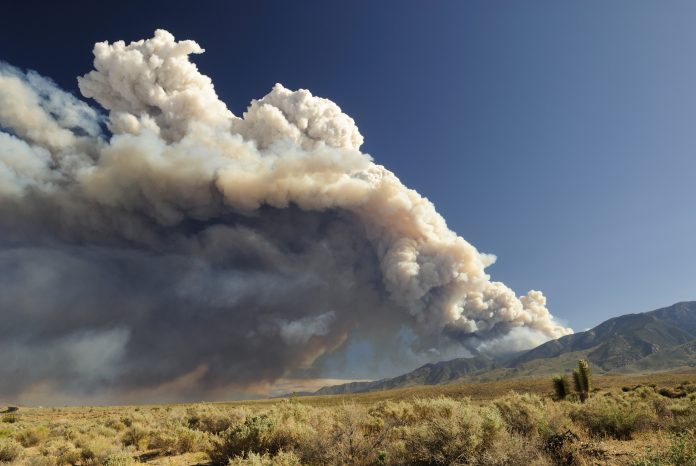Researchers have found that wildfire smoke exposure can be responsible for premature births, a health consequence which is “likely to increase”
Wildfire smoke is a common sight across various countries, with extreme heat on the rise across the globe. Scientists predict that over half of the global population will experience intense heat in the future, with more likelihood of wildfires springing up across the most impacted regions.
Co-author Gary Shaw, a professor of pediatrics and co-primary investigator of Stanford’s March of Dimes Prematurity Research Center, said: “However, against a backdrop where we know so little about why some women deliver too soon, prematurely, and why others do not, finding clues like the one here helps us start piecing the bigger puzzle together.”
Wildfire smoke contains high levels of the smallest and deadliest type of particle pollution, known as PM 2.5. These specks of toxic soot, or particulate matter, are so fine they can embed deep in the lungs and pass into the bloodstream, just like the oxygen molecules we need to survive.
“Health burden” is “likely to increase”
Lead author Sam Heft-Neal, a research scholar at Stanford’s Center on Food Security and the Environment, said: “In the future, we expect to see more frequent and intense exposure to wildfire smoke throughout the West due to a confluence of factors, including climate change, a century of fire suppression and construction of more homes along the fire-prone fringes of forests, scrublands and grasslands.
“As a result, the health burden from smoke exposure – including preterm births – is likely to increase.”
One possible explanation for the link between wildfire smoke exposure and preterm birth, the authors say, is that the pollution may trigger an inflammatory response, which then sets delivery in motion. The increase in risk is relatively small in the context of all the factors that contribute to the birth of a healthy, full-term baby.
“Any exposure above zero can worsen health impacts”
Stanford environmental economist Marshall Burke, a co-author of the new study, said: “Our work, together with a number of other recent papers, clearly shows that there’s no safe level of exposure to particulate matter. Any exposure above zero can worsen health impacts.
“While as a society it will be extremely difficult to fully eliminate all pollutants from the air, our research suggests that further reductions in key pollutants below current ‘acceptable’ levels could be massively beneficial for public health.”











